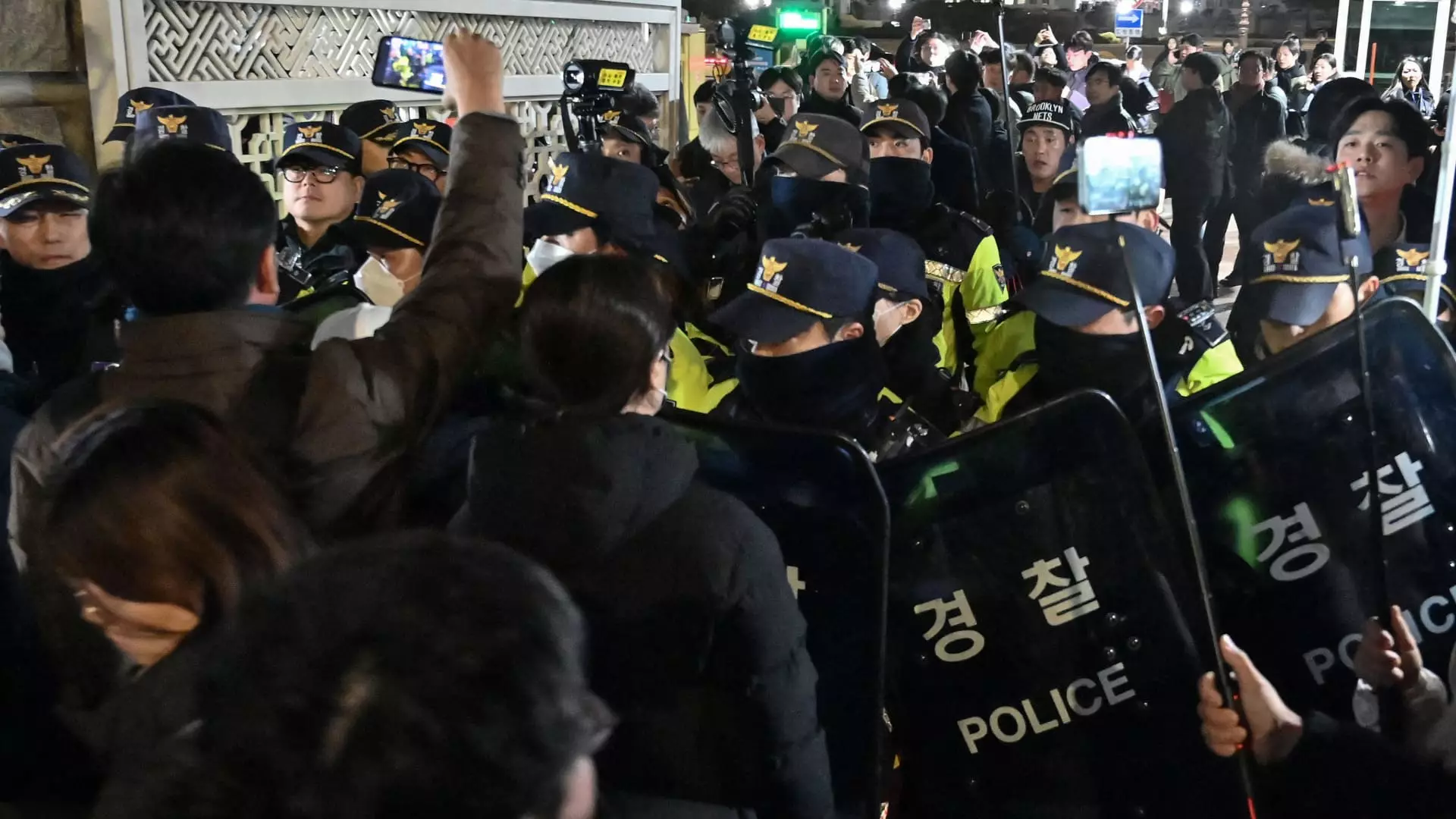The recent declaration of martial law by South Korean President Yoon Suk Yeol has sent shockwaves through both the national and international financial markets. Investors reacted swiftly and negatively on Tuesday, with a steep drop in the iShares MSCI South Korea ETF, which measures the performance of over 90 key South Korean corporations. The ETF fell to its lowest point in a year, declining as much as 7% due to heightened fears surrounding the implications of such drastic political actions within one of the world’s most significant economies.
The economic ramifications extended beyond ETFs. Various prominent companies such as Korea Electric Power and Coupang reported losses of 5% and 6%, respectively, reflecting the broader apprehensions among investors about the political climate. Furthermore, KT Corporation and Posco exhibited vulnerabilities, with their shares declining by 3% and more than 6%. Such declines underline the sensitivity of financial markets to perceived instability, raising questions about investor confidence in the resilience of South Korea’s economy amidst political upheaval.
Emergency Declaration: Historical Context and Legal Framework
Yoon’s decision to declare martial law is a historically significant one, marking the first time since 1980 that such a measure has been imposed. This act reflects a desperate attempt by the president to consolidate power amid claims that opposition parties are undermining national security by allegedly sympathizing with North Korea. Intriguingly, this declaration not only imposes restrictions on political activities but raises profound implications for governance and democracy in South Korea, leaving citizens and political analysts alike concerned about the trajectory of democracy in the country.
The political ramifications were swiftly felt in the National Assembly. Within a mere three hours of the announcement, 190 out of the 300 lawmakers convened and successfully voted to overturn the decree, underscoring the contentious nature of the political environment. This rapid response signals a strong pushback against the executive’s emergency measures and indicates that many within the government are not willing to accept such authoritarian tactics without challenge.
Investor Sentiment and Future Projections
Market reactions to Yoon’s declaration signal a profound sense of uncertainty and instability among investors. The Korea Exchange has scheduled an emergency meeting to determine how to navigate the crisis, a clear acknowledgment of the immediate need for strategic responses to mitigate market turmoil. The resultant increase in the value of the U.S. dollar against the South Korean won by 1.9% further emphasizes the flight of capital as investors seek safer havens amid geopolitical tensions.
Looking ahead, the ongoing volatility raises critical questions about South Korea’s economic future and investor appetite. The swift response from lawmakers may restore some degree of normalcy, but long-term implications of Yoon’s emergency powers remain to be seen. Stakeholders must carefully monitor developments, as the interplay between political stability and economic confidence will be decisive in shaping the trajectory of South Korea’s markets in the months to come. The critical balance between governance, citizen rights, and economic health remains tenuous and must be navigated with caution.

